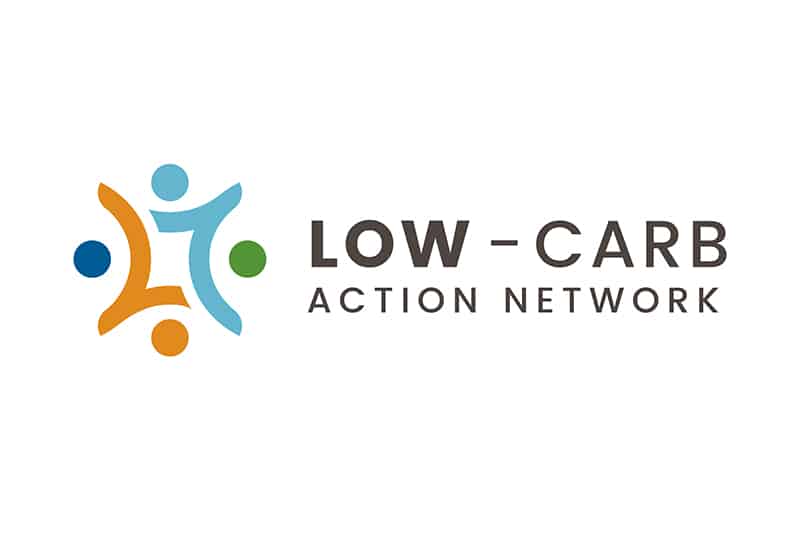Press Release: L-CAN Objects to Science Excluded from Report by the Dietary Guidelines Advisory Committee
July 15, 2020

FOR IMMEDIATE RELEASE
July 15, 2020
Press Contact: Jessica Wharton
jessica@lowcarbaction.org
WASHINGTON, D.C. – The Low-Carb Action Network (L-CAN) today voiced strong objections to the final report by the Dietary Guidelines Advisory Committee (DGAC), which excludes all low-carbohydrate studies, all trials on weight-loss, and failed to address numerous process and methodological concerns.
The DGAC report stated that there was “limited” evidence to show that a low-carb diet could help prevent heart disease and not enough evidence (“Grade Not Assignable”) to show that the diet could prevent obesity or type-2 diabetes. These grades mean that a low-carb diet will almost certainly not be included as an option in 2020-2025 Dietary Guidelines.
These conclusions stand in stark contrast to those by other expert groups. For example, the American Diabetes Association, Diabetes Canada, and the European Association for the Study of Diabetes have all reviewed the scientific literature on low-carb diets and concluded that they are a safe and highly effective option for the prevention and management of type 2 diabetes.
Moreover, there are some 100 systematic reviews of low-carb and ketogenic diets in the scientific literature (searchable on pubmed.ncbi.nlm.nih.gov), which makes it even more astonishing that the DGAC uniquely could not find any of these trials. L-CAN maintains a data-base of low-carb clinical trials, which is available here.
“It is astonishing that the Dietary Guidelines Advisory Committee would publish a report that excludes such a large body of scientific literature. At least 65 trials on low-carbohydrate diets were excluded from this report,” stated Dr. Mark Cucuzzella, L-CAN Director, medical doctor, and professor of family medicine at West Virginia University. “There has been a passionate and growing movement among nutrition groups, medical doctors, and Americans across the country calling for a delay in the release of this report until the Committee has reviewed the most recent nutrition studies using a transparent and rigorous process. By forging ahead amidst serious objections and excluding low-carbohydrate and weight-loss studies, the Committee is effectively steamrolling over these concerns.”
Dr. Cucuzzella added, “It is also very disturbing to us that the Committee, by focusing exclusively on ‘healthy Americans,’ has chosen to exclude the majority of the U.S. population, 60% of which is battling nutrition-related illnesses. How can the American public put any trust in a nutrition policy that is clearly not designed for them?”
According to the Center for Disease Control and Prevention (CDC), the rate of adult obesity in the U.S. is now at 42.4%, and more than 114 million U.S. adults have pre-diabetes or type 2 diabetes. Low-carbohydrate diets have been scientifically proven to be effective in preventing and reversing chronic diet-related diseases, including obesity, diabetes, and hypertension.
“It is disheartening that the Committee would rush to reach an arbitrary July deadline, when in fact it has until October to finish this report. The committee should have taken time to review all the science before reaching its recommendations,” said Dr. Charles Cavo, L-CAN Steering Committee member, medical doctor, and Chief Medical Officer and Co-Founder of Pounds Transformation in West Hartford, CT. “The Committee, in many cases, relied on outdated science from the 2015 Guidelines, and its recommendations, once again, propose a one-size-fits-all approach for all Americans. These guidelines are inappropriate for the majority of Americans who are battling nutrition-related diseases.”
“As both a medical doctor and someone who has recovered my health by adopting a low-carbohydrate lifestyle, it is frustrating and disappointing to see the Dietary Guidelines Advisory Committee ignore sound science and create recommendations for the mere 20-40% of Americans who are ‘healthy,’” said Dr. Tro Kalayjian, a medical doctor in Tappan, NY and himself a low-carb success story. “I lost 150 pounds, and together with my family, regained our health by ignoring the Dietary Guidelines and eating a low-carb diet. All Americans battling nutrition-related diseases deserve the opportunity to have this knowledge and do the same.”
L-CAN also continues to object to the process used to create the 2020 Dietary Guidelines for Americans and is calling for a delay in finalizing the Guidelines until scientific studies on low-carb diets are included for review and a low-carb diet can be incorporated as one viable option among the USDA-HHS “Dietary Patterns.” The charter for the DGAC expires on October 5, which allows time for the committee to extend its work—and to consider the 65-plus low-carb studies that the Committee has thus far chosen to ignore.
##
The Low-Carb Action Network is a coalition of doctors, academics, advocates, and Americans with personal success stories, urging U.S. nutrition leaders to include a true low-carb diet as part of the 2020 Dietary Guidelines for Americans.



